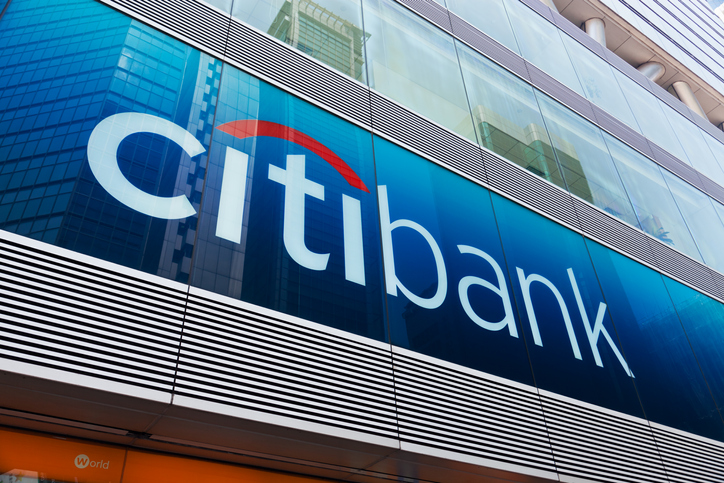ii view: lots to like in Citigroup results, so why are the shares down?
Operational challenges have marred recent quarters but can a new CEO help it turn a corner?
18th January 2021 11:47
by Keith Bowman from interactive investor
Operational challenges have marred recent quarters but can a new CEO help it turn a corner?

Fourth-quarter results to 31 December 2020
- Revenue down 10% to $16.5 billion
- Net income down 7% to $4.6 billion
- Earnings per share down 3.3% to $2.08
Chief executive Michael Corbat said:
“We remain very well capitalized with robust liquidity to serve our clients. Our CET 1 ratio increased to 11.8%, well above our regulatory minimum of 10%. Our Tangible Book Value per share increased to $73.83, up 5% from a year ago. Given the Federal Reserve decision regarding share repurchases as we have excess capital we can return to shareholders, we plan to resume buybacks during the current quarter."
ii round-up:
US bank Citigroup (NYSE:C) reported better-than-expected fourth-quarter earnings but failed to inspire investors as both revenues fell and group costs rose.
Revenues fell by 10%, hindered by lower card volumes and further falls in interest rates. Group expenses rose by 2% as the bank continued to invest in order to address prior operational deficiencies.
Citigroup shares retreated by just over 5% in post results US trading, leaving them down by around a fifth over the last year. Shares for US rival JPMorgan Chase (NYSE:JPM) are fractionally higher over the last year, while shares for Asian focused bank Standard Chartered (LSE:STAN) are down by a little under a third.
Operational issues and resulting regulatory fines saw Citi announce a change of chief executive last September. Michael Corbat will be replaced by Jane Fraser in February. The new CEO will undertake a review of the bank’s strategy.
Net income, or profit, for its global consumer bank fell by 17% to $1.3 billion. North American revenues for the division retreated by 11%, hit by lower purchase sales. Latin American revenues declined by a fifth as reduced loan volumes impacted.
Overall group earnings per share of $2.08, although down on the last quarter of 2019, comfortably surpassed expectations as the bank returned cash from previously set aside bad debt provisions. That move was underpinned by both central bank stimulus and the rollout of Covid-19 vaccines globally.
Profit for its markets, or institutional clients division, rose by just over a quarter to $3.7 billion, helped by a 13% increase in markets and securities services revenues.
Like rival JP Morgan, Citi is also now planning to recommence share buybacks in the first quarter of 2021. The bank previously declared a quarterly dividend of $0.51 per share.
ii view:
Citi operates through two divisions of global consumer banking and institutional clients. Global banking serves over 100 million customers and is the largest credit card issuer by loans outstanding. Its retail bank serves markets in the US, Mexico and Asia. The institutional clients division serves the complex needs of companies, financial institutions, public sector bodies and investment managers. It facilitates $4 trillion of transactional flows daily.
For investors, ongoing pandemic uncertainty must be remembered, as does the dampening impact on profits from continued ultra-low interests and the bank's previous operational challenges. But returning money previously set aside for bad debt provisions does appear to suggest a perceived peaking by management of Covid damage. So does the pending return to share buybacks. A forecast dividend yield of around 3% (not guaranteed) is also attractive in an era of ultra-low interest rates, while the start of a new chief executive and strategic review offer scope for change. In all, despite ongoing room for caution, Citigroup may just be turning a corner.
Positives:
- Geographical diversity
- Attractive dividend payment (not guaranteed)
Negatives:
- Falling revenues
- Lower interest rates are broadly bad for bank profitability
The average rating of stock market analysts:
Buy
These articles are provided for information purposes only. Occasionally, an opinion about whether to buy or sell a specific investment may be provided by third parties. The content is not intended to be a personal recommendation to buy or sell any financial instrument or product, or to adopt any investment strategy as it is not provided based on an assessment of your investing knowledge and experience, your financial situation or your investment objectives. The value of your investments, and the income derived from them, may go down as well as up. You may not get back all the money that you invest. The investments referred to in this article may not be suitable for all investors, and if in doubt, an investor should seek advice from a qualified investment adviser.
Full performance can be found on the company or index summary page on the interactive investor website. Simply click on the company's or index name highlighted in the article.